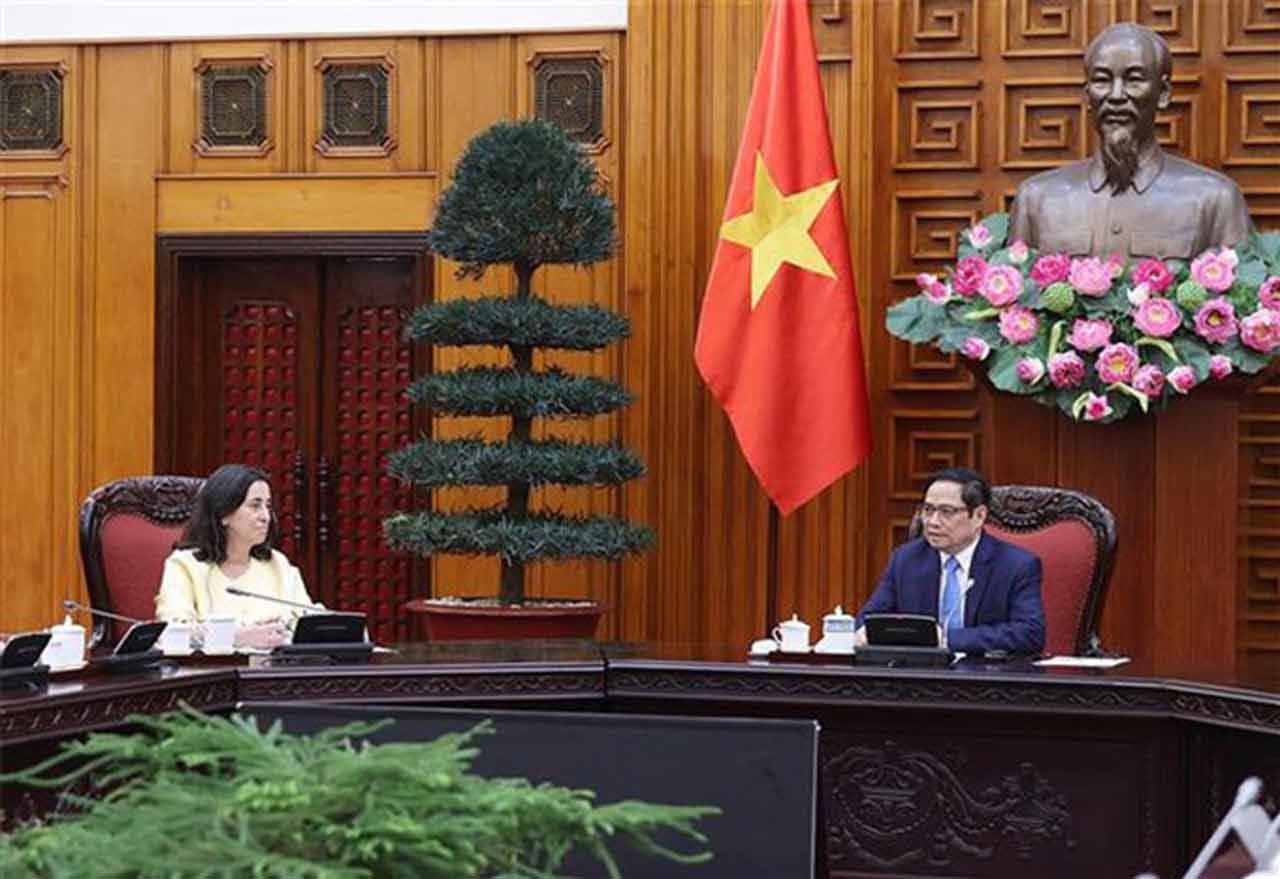HCMC – The World Bank (WB) will help Vietnam outline a roadmap and solutions to realize its aspirations to become a high-income economy by 2045, said WB Regional Vice President for East Asia and Pacific Manuela V. Ferro, who just concluded her five-day visit to Vietnam.
During meetings with Prime Minister Pham Minh Chinh, National Assembly Chairman Vuong Dinh Hue, and other senior leaders of Vietnam, the two sides discussed Vietnam’s development priorities and challenges and how the country can take advantage of the WB’s support to improve the living conditions of Vietnamese people.
A highlight of Ferro’s visit was the agreement to jointly develop the Vietnam 2045 report, news site Vietnamplus reported.
In the report, the pace of reforms stated in the Vietnam 2035 report, which was made in 2016, will be reviewed, hereby assessing the impact of the Covid-19 pandemic and other major global trends on the economic trajectory.
In addition, recommendations serving policy discussions before the 14th Party Congress, slated for 2026, will be provided.
Ferro said Vietnam’s development had been making progress, and so had the partnership between Vietnam and the WB. The WB would propose innovative solutions to deal with challenges in line with the characteristics of Vietnam’s development opportunities.
Besides the target of becoming a high-income country by 2045, the WB will help Vietnam reach net zero emissions by 2050.
The partnership between Vietnam and the WB will focus on strategic sectors to boost growth based on labor productivity, the adaptability to climate change and the WB’s support through analysis reports and financial aid.
Ferro also visited HCMC to expand its relationships with Vietnam’s largest economic hub.
During a meeting with municipal Chairman Phan Van Mai, the two sides discussed the major challenges facing the city during the post-pandemic economic recovery and solutions to mobilize brainpower and financial resources from the WB to improve its competitiveness.
A joint working group between the WB and the city was also established to build cooperation plans in the following years.
The WB has been financing 33 projects worth a total of US$5.72 billion in many sectors in Vietnam, including living condition improvement, infrastructure, education, healthcare, transport, energy, water resource management and urban resilience.
Since its return to Vietnam in 1994, the WB has committed to funding more than US$25.3 billion for Vietnam’s development.









